Novuyo Rosa Tshuma, author of “House of Stone,” on the making of history that comes from storytelling
During the writing of my debut novel, House of Stone, it struck me how the beginnings of a family, community or country are so amorphous, amenable to the shaping and meaning-making that comes from storytelling.
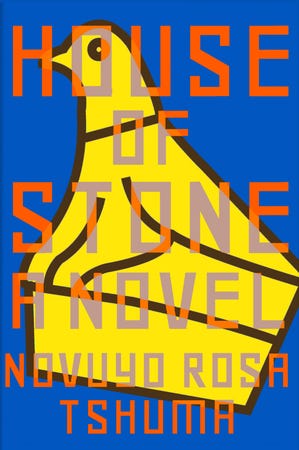
The narrator in House of Stone, Zamani, is a young man on a mission to uncover the history of the Mlambos — a family with whom he is staying — and shape out of that history an identity for himself. He’s a glittering, dark-hearted gem; a growling, prowling, strange Zimbabwean Pygmalion. The historical telling, which chronicles the beginnings of the Mlambo family and by extension, the country Zimbabwe, arises from the wonderful philosophical core of the novel — that if only Zamani can lay claim to, and master, a new history, he can begin his life anew and reinvent himself as someone else. This, I realize, unwittingly mirrors the country Zimbabwe’s own quest to reinvent itself from its colonial forebear, Rhodesia.
Here are some of the most pleasurable books on the creative — and often destructive — act of history-making.
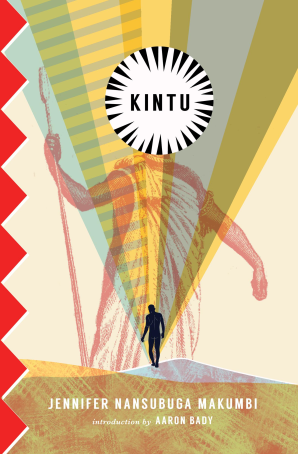
Kintu by Jennifer Nansubuga Makumbi
Set both in the precolonial Buganda Kingdom and postcolonial Uganda, this whirlwind of a novel traces the lives of a royal warrior, Kintu Kidda, and his descendants. A reckless action on Kintu’s part, which leads to the death of the son of a close friend, results in a family curse that is passed down to his offspring through the generations. The family curse seems to signify the curse that was colonialism and its effects on the Ugandan people’s sense of self and place in the world. Kintu’s descendants in postcolonial Uganda find themselves steeped in confusion and seemingly inexplicable hardship. Written in energetic prose, this epic animates and delights with its brilliant action and humor.
A Chapter from the Great Ugandan Novel
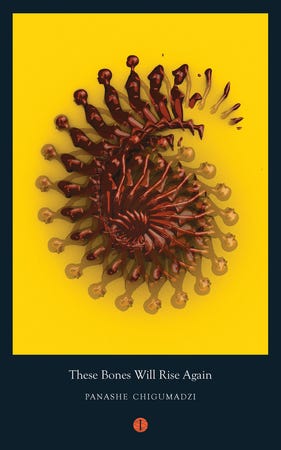
These Bones Will Rise Again by Panashe Chigumadzi
Told in crisp, gorgeous prose, this work of non-fiction was the first to respond to Zimbabwe’s ‘coup-not-a-coup’ which happened in November 2017. It brings a refreshing eye to Zimbabwe’s history and illuminates our human face — much like being privy to fascinating aspects of yourself you’ve never gotten the chance to really know. Through her search for her grandmother, author Chigumadzi takes us on a journey into Zimbabwe’s turbulent past, questioning identity and how it is constructed. The work blends memoir with history and philosophy in stunning ways, lingering on small, precious moments, such as an animated young African woman in 50s Rhodesia seeing herself as though for the first time through the lens of a camera. A precious book after my own heart.
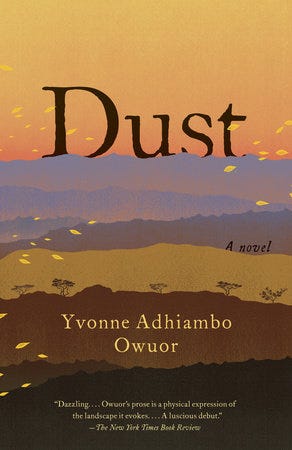
Dust by Yvonne Adhiambo Owuor
This epic novel about the beginnings of Kenya is a tender and searing portrait of love, family and secrets. It chronicles the death of one young man, Odidi, who is gunned down on the streets of Nairobi, and his family’s grief. One of the most beautiful things about the novel is the way it evokes Kenya, both on a micro and macro level. In addition to Odidi, it juxtaposes the stories of his sister Ajany , their father Nyipir and the Englishman Isaiah Bolton. It also delves into the assassinations of Kenyan revolutionaries such as Pio Gama Pinto and Tom Mboya — stains on the country’s conscience — and the impact of such loss on the communal psyche. The novel is written in a stunning, inventive English that encapsulates the rhythms of Kenyan languages like Luo and KiSwahili. The result is a gorgeous, searing exploration of the things that make us human and fragile and beautiful.
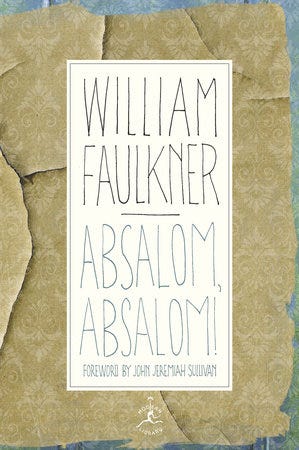
Absalom, Absalom! By William Faulkner
Told by a young man named Quentin Compson, this classic — in my estimation Faulkner’s greatest work — narrates the rise and demise of the family of Thomas Sutpen, a self-made and sinister man who arrives in Jefferson, Mississippi one fine day in the 1883 in search of wealth. The story narrates Sutpen’s lust for legacy and his ruthless quest for power. A man of charm and authority, he (re)invents himself in impressive ways. The story takes place just before, during and after the American Civil War. This struggle of the United States to define and reinvent itself is mirrored in the struggles of the Sutpen Family. An intoxicating read whose sparkling, sinewy prose mirrors the novel’s elusive quest for the truth about a complex and tricky past.
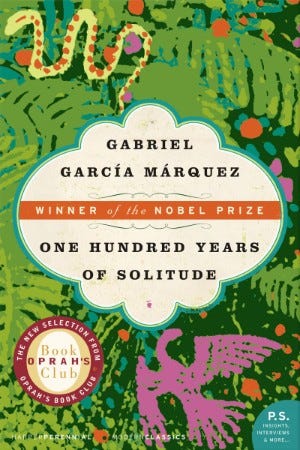
One Hundred Years of Solitude by Gabriel García Márquez
This kaleidoscopic classic narrates the lives of seven generations of the Buendia family. It begins with the family’s founding patriarch, Jose Arcadio Buendia, who builds a town called Macondo, in Colombia. The story of the town of Macondo — from the traveling gypsies and their fantastical tricks, to the civil war in Colombia that Jose’s son Aureliano Buendia joins, to the introduction of globalization in the form of an American fruit company that disrupts the lives of the locals — is in effect a story about the whole of civilization. Told in a dead pan voice that renders both the fantastical and the mundane with the same level of seriousness, this sprawling epic is a gift that keeps on giving.
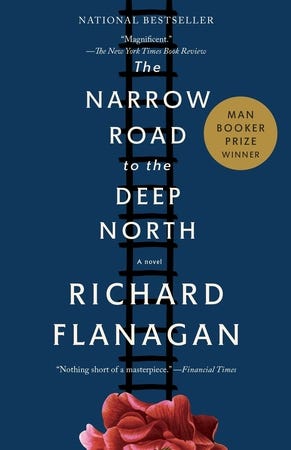
The Narrow Road to the Deep North by Richard Flanagan
This gorgeous novel traces the life of Dorrigo Evans, a doctor and veteran who has become the face of the Australian soldiers who were taken prisoner by the Japanese army during World War II and forced to slave away on the Burma Railway for Japan. Told in scintillating prose, and spanning almost a century, this epic pieces together our fragile humanity, from forbidden love to war to loss to death to reinvention. Reading it, I found myself falling to pieces over and over again.
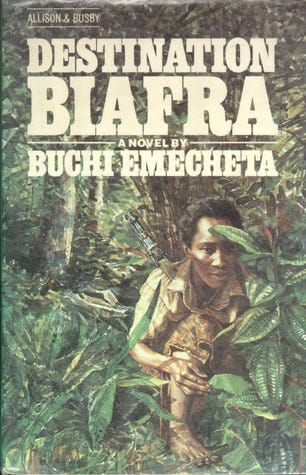
Destination Biafra by Buchi Emecheta
Set in the decade after Nigeria gained independence from Britain, this feisty novel follows Debbie, an Oxford-educated Nigerian woman living in Lagos, where she has agreed to the task of peacemaker cum negotiator with Biafra, a secessionist-state which has lead to civil war in Nigeria. Debbie, whose identity is delightfully fluid — she is neither Yoruba, nor Igbo, nor Hausa — is then posted to the South-East of Nigeria, where her life of ease is upset by the war camps and casualties she finds there. Ultimately, she refuses what she sees as men’s war, from whose power she is excluded and in whose violence she is inextricably tied. This searing, delightful story illuminates the tensions of a young Nigeria and the inner turmoil of a spunky woman as she tries to understand what ‘home’ means.

Beloved by Toni Morrison
Set right after the American Civil War, this blazing classic centers on a ghost named Beloved, who terrorizes the inhabitants of a house known only as 124 in Cincinnati Ohio. The year is 1873. In order to understand the present, the novel seems to be saying, we must understand the past. We go back in time into the life of Beloved’s mother, Sethe, who managed to escape with her children from Sweet Home, the plantation where she worked as a slave, during the Civil War. Pregnant, Sethe succeeds in making a miraculous journey from Kentucky, where Sweet Home is located, to the free state of Ohio where a black community thrives under the care of Baby Suggs, her mother-in-law. But the past won’t leave her alone, and rapidly catches up with her and her children, forcing her to make what is an impossible choice. It is from this choice that the ghost Beloved springs, angry and ferocious, demanding answers to terrible questions. Told in lush, thriving prose, this magnificent novel made me laugh and cry in good measure, and broke my heart over and over.

About the Author
Novuyo Rosa Tshuma grew up in Zimbabwe, and has lived in South Africa and the USA. She is a graduate of the Iowa Writers’ Workshop (2015), where she was awarded the Maytag and Teaching-Writing Fellowships, as well as a Rydson Award. She served as Assistant Professor of Creative Writing at the University of Iowa in 2015–2016, was a 2016 Writer-in-Residence at the Kimmel Harding Nelson Center for the Arts, and is a recipient of a prestigious 2017 Bellagio Center Literary Arts Residency Award from the Rockefeller Foundation for her novel project House of Stone.


8 Books about the Beginnings of Countries was originally published in Electric Literature on Medium, where people are continuing the conversation by highlighting and responding to this story.















